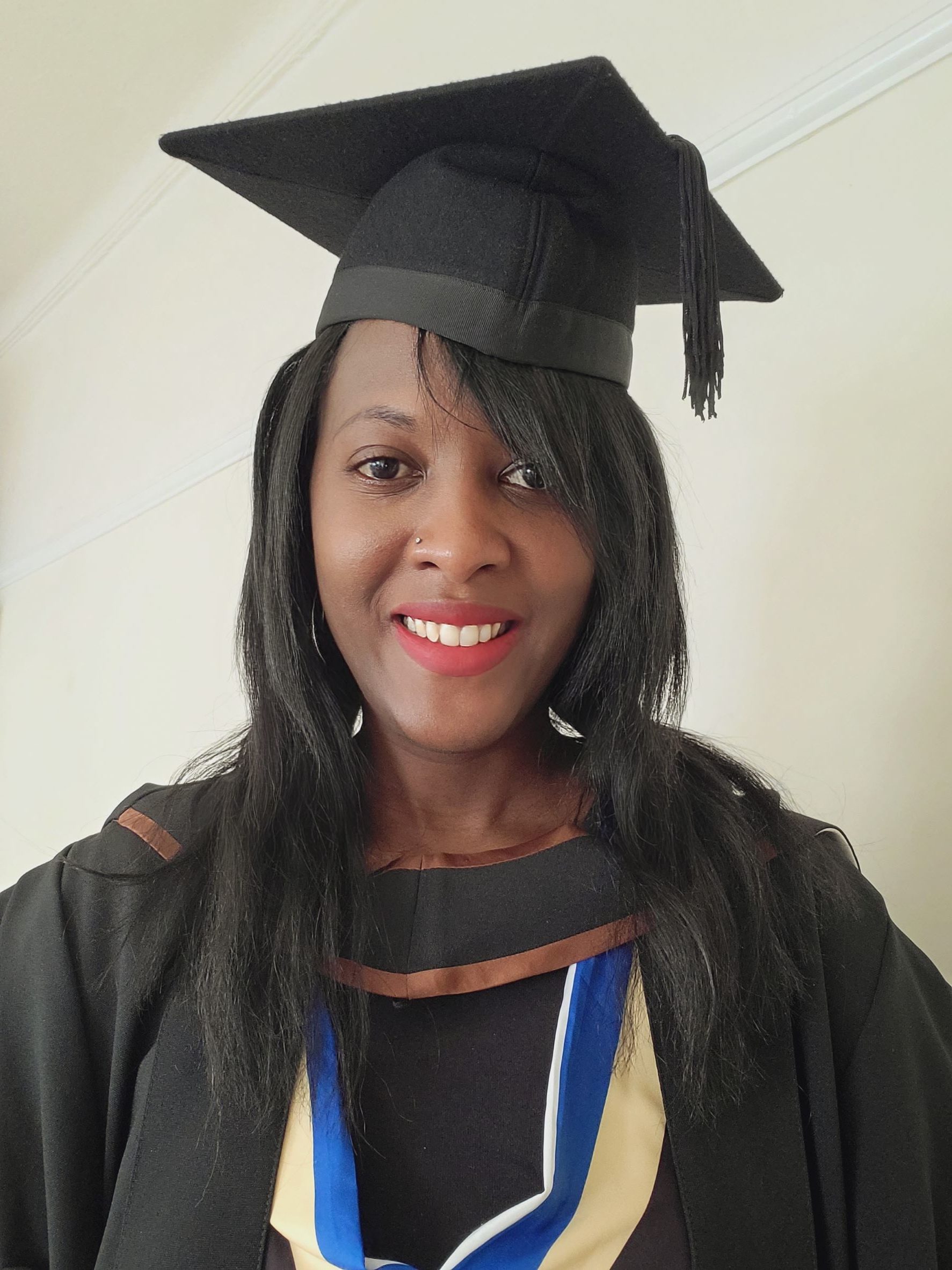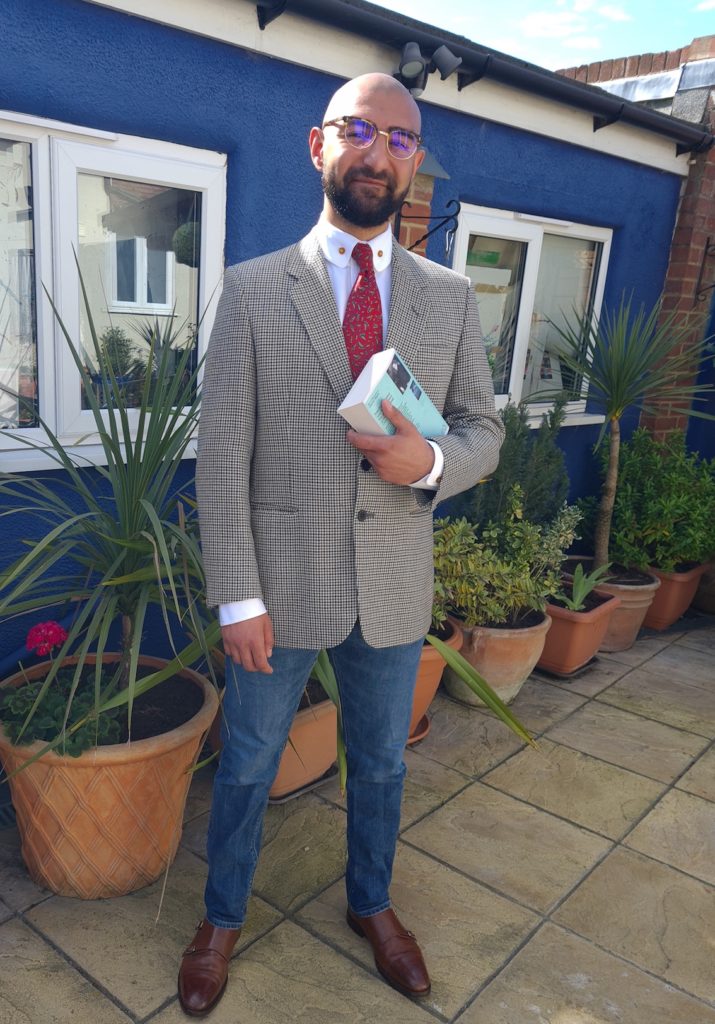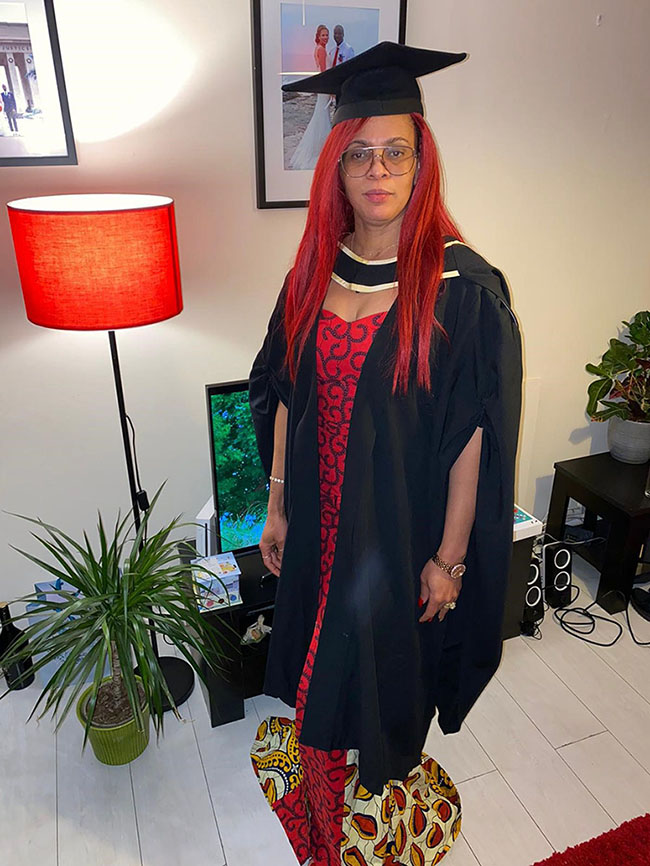Nikesha Morris always knew she had it in her to learn despite only learning to read and write at ten years old. Graduating this week with a BA Psychosocial Studies and Principles of Psychodynamic Counselling degree, she’s setting an example on how to overcome life’s obstacles. This is her #BBKstory.
Ten years’ experience working in schools, supporting parents and students with their wellbeing, alongside having a natural capacity for advising others, provides Nikesha Morris with an ideal platform to pursue her goals in the field of counselling. Advising and supporting people has always been a key driver for her relationships with others.
Having recently completed a BA in Psychosocial Studies and Principles of Psychodynamic Counselling, she’s setting herself up well to progress her career and expand her support network.
With a baby on the way and raising “two beautiful children” with her husband, it’s difficult to imagine Nikesha facing any predicaments as she cheerily speaks of her husband trying to calm her down with her plans post-graduation: “I’m already planning and he’s right to say: ‘No. We don’t want to go through that again’. He tells me: ‘Just give yourself a break’, but I don’t want to. I mean, initially when I started this course, I wanted to go to PhD level. I’ve always viewed myself as a doctor or psychotherapist…something along those lines.”
Yet academic accomplishments eluded her during the earlier years of her education and life didn’t always appear so rosy. She explains: “There were very high expectations from my mum and she would just say, ‘Oh she can do it!’ I felt really embarrassed knowing that deep down I couldn’t do it. I was bullied in school. I was called ‘dunce’ as well. I wasn’t the smartest in class and it was quite a struggle which knocked my confidence.”
It wasn’t until Nikesha was working through her degree at Birkbeck, in 2018, that she reached out and received the necessary support from services at the College, and learnt that she was dyslexic. It led her to reflect on those earlier years of ‘poor achievement’: “It’s funny because I felt it deep down throughout my whole childhood, I’ve always wanted to get to the next stage (of education), but I knew I didn’t have it in me and I didn’t have the support. I think moving to a new country from Jamaica, with new opportunities, kind of put me into a new dynamic and new mindset where I just thought: you know what…this is an opportunity and I’m going to try and see if I can catch up on what I’ve missed out on.”
Recognising and understanding the core of those earlier issues has given her some peace and she’s keen to use this personal learning to apply to her career. She’s also aware that a strong support system goes a long way in helping to achieve your goals in life.
“Anything is possible with organisations such as Birkbeck. It’s good to be honest in your own abilities and accept help wherever possible. There’s no shame in gaining knowledge from others, and it’s never too late, no matter what age you are or what your position is. Doing my degree at Birkbeck has been a life changing experience. It’s been fraught with lots of challenges, but in those I’ve found growth through a renewed effort, reaffirmation of self-belief, and most of all faith. I kind of feel like it was an experience that was needed.”
This week, she’s leaving her adversities in the past, including years of depression, a recent diagnosis of bipolar and fighting homelessness; and is setting her sights firmly on more positive things, with graduation being the first stop:
“Gosh, this means everything. When I clicked the submission button on my final assignment and I knew that I was coming to the end of my degree…when I received the graduation email and my grades… I was like ‘Oh my God’. It was one of the best moments of my life. Elation cannot come close to describing the feeling of achievement and reaching the summit, so to speak. It really does drive home the mantra of being halfway up the mountain, you know, keep going, never give up and just continue on the path to success.”
Further information



